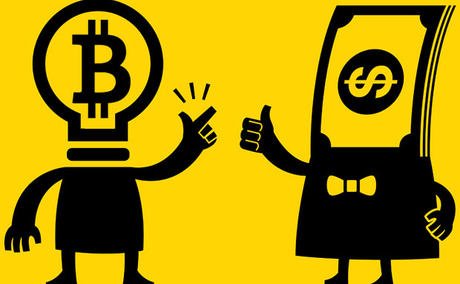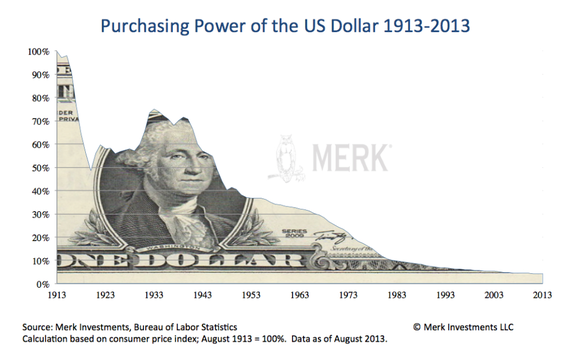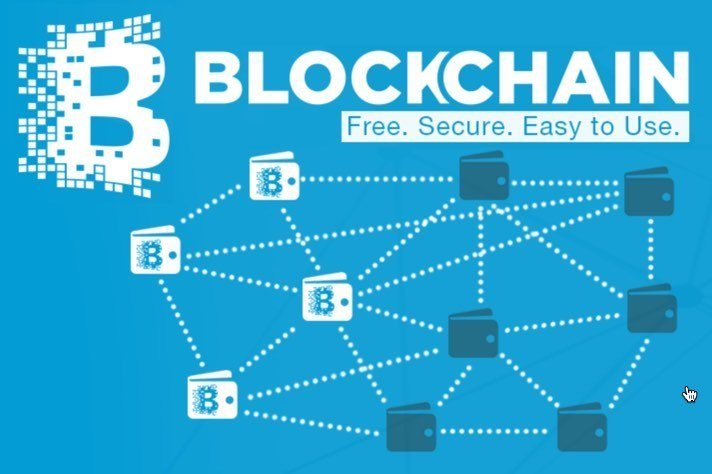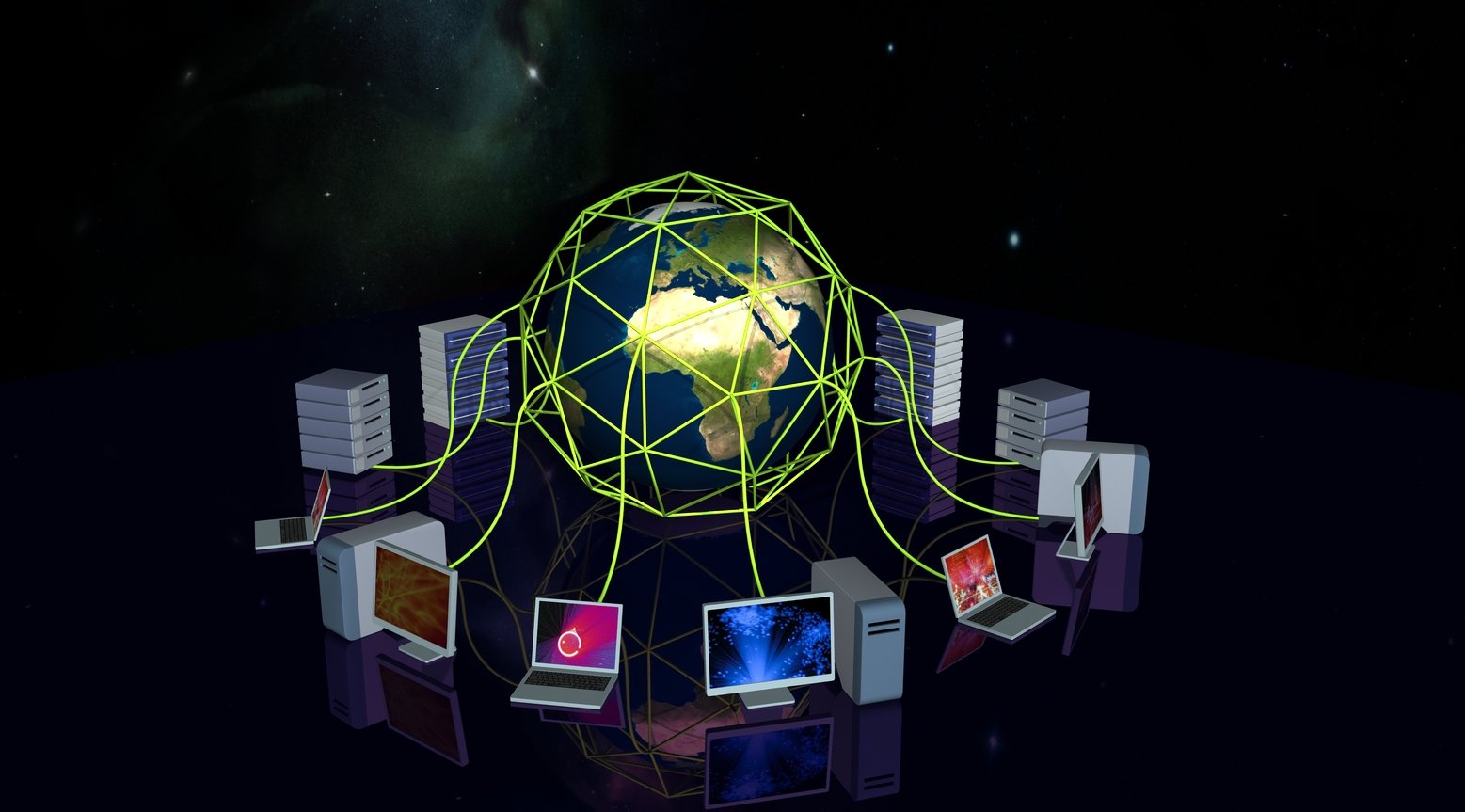Let's make this easier to understand and explain to others.

I've been preaching the word of Steemit pretty much since I started here a year and a half ago. Many people have been willing to listen, see my page and my payouts, and know that earning have been successfully cashed out and used to pay for things like groceries, mortgage payment, etc.
The most difficult thing I've encountered is when the inevitable question arises of "Where does the money come from?" Which also ends up also answering a bit on "What is Cryptocurrency?" So this post going to go briefly go through how I answer both of these crucial questions to non-crypto, non-techie people.

Where does the Money come from?

I really can't blame anybody for asking this, I did myself when first told about Steemit. It really is an important factor when something can be seen as a scam or legitimate.
The shortest explanation is that everyday there is new money printed, which is then distributed to witnesses, authors, commentors and curators. Now I know what you're thinking...doesn't this cause the value of Steem to go down due to inflation?
Sure, it has some influence but it's not terribly large, especially now. After the economic changes to Steemit in November 2016, the yearly amount of newly created money dropped from at minimum 110% down to 9.5% (or 0.026% per day). It's also important to remember that our governments also print new money each day, with some going into circulation (without replacing old bills), just like the Steem.
I won't bore you with the details in this post, but you can read more where the money comes from or these economic changes on these posts:
- ❓Answering Common Questions: Where does the money come from? 💵 by @sykochica
- Final Review of Steem Economic Changes by @steemitblog
- Steemit Economic Changes - Now vs. November 16th Fork by @krnel

A Quick Look at the US Dollar

Before we look at cryptocurrency, lets talk about the fiat (or government backed) money using the US dollar as an example. Up to the 1970's United States currency was on the gold standard, meaning that someone holding a $100 dollar bill technically held $100 dollars worth of gold. A simple way to think of this is that all the money in "people's pockets" was stored in Ft. Knox.
President Nixon removed the US dollar from the gold standard in 1971, meaning NOTHING physical is what determines the value. From this time on, our money has been determined by non-tangible things such as:
Supply and Demand for the US Dollar through trade of goods or (bond) exchange markets
Viewed strength of the US economy (example: high vs low national unemployment rates)
and others (but lets keep this simple)
My whole point here is that the Dollar bill in our pocket is really changing in value from moment to moment, even though we still see the same physical dollar. Nowadays our money holds value because we and others have faith in it's worth and that it's spendable.

What are Cryptocurrency and Blockchains
Cryptocurrency

Cryptocurrency basically means "a currency that is not backed by a government." The crypto part simply means that cryptography was used to secure transactions (like what happens when you swipe your credit card) and to control creating new currency (versus the US who can print more money and minimize counterfeiting.)
Much like the "off the gold standard" US dollar, Bitcoin is valued in a similar way, by the non-tangible factors. Now, the US had a long time to "build up trust" in it's currency before getting off the gold standard, so it can make sense as to why it still holds value. Having a trusted track record goes a long way when it comes to trade.
Blockchain

Have you ever seen those US dollars with a stamp on it for a website like http://www.wheresgeorge.com, which let you see where that specific dollar in your hand has been previously? Now imagine that this dollar was tracked on that website EVERY time it changed hands, not just when someone thought to visit and input the serial number. Now imagine EVERY dollar was tracked EVERY time it was spent. You would be able to see in sequence, how every piece of US currency moved if this was the case and take a rather large database to handle it.
This is how you can think of the blockchain, as a database that has tracked every dollar, every time it changed hands. This would also include those times when a tourist needs to exchange the Euro's in their pocket for US dollars to spend while here. The blockchain is a long string of sequential "money exchange" records with the new records (or blocks) being added on every second to keep it up to date.
Bitcoin

Bitcoin was the first cryptocurrency which was started back in 2009. So you may ask, how did Bitcoin build up trust since there was no long track record available when it started? It's not backed by a precious metal or anything that we could ask to trade in our Bitcoin for. This is where the blockchain (i.e. public ledger) comes in to play.
The first transaction using Bitcoin was made in 2010 to buy two pizzas for 10,000 Bitcoin (BTC.) In today's market, these same 10,000 BTC are worth in excess of $150 Million US dollars. Over this time, the transparency of the blockchain allowed individuals to see all the transactions that took place for EVERY Bitcoin, building up people's trust in it having value.
Nowadays there are hundred of companies the accept Bitcoin as easily as they take your MasterCard, Visa or Debit Card including Microsoft, Virgin Galactic and Expedia. An even larger list can be seen here. There are even more places, like Walmart, where you can use a Bitpay (Pre-loaded with Bitcoin) card to make purchases. Here is a blog of somebody who show's the successful transaction: Here.

Benefits of Cryptocurrency
Accounts Cant Be Frozen

Some people are concerned about their governments being able to freeze their bank accounts or assets. Since cryptocurrencies (by definition) aren't backed by a government, they aren't controlled by one either. There is no way for you Bitcoin account to be frozen.
Decentralized Systems are Resilient to Attacks or Disasters

Cryptocurrencies are typically what they call "decentralized," meaning that there isn't a single location running the whole system, but rather many computers around the world who are synced up with each other. This means that if something happened (like a natural disaster) the system would still function if say, the only computers in the US were effected. The others around the world would still keep things going.

Final Thoughts
Cryptocurrency and specifically Bitcoin are not as scary as they're typically made out to be. Bitcoin is by far the most establish of these currencies and even though it does fluctuate a bit in value (just like the US dollar,) it's a rather stable market. I typically liken these to blue chip stocks when giving someone an analogy.
The Steemit website pays bloggers and other content creators in the cryptocurrency Steem. Now while this is a newer currency, and I can understand some concerns investors may have, I don't see anyway those who pay nothing in, yet get money out, can lose. There are multiple ways that Steemit users can get and spend their earnings, transferring it to their Bitcoin wallet (and using the Visa Shift Card, their Bitpay Card or to their bank account (through a Bitcoin wallet.)
Please upvote and resteem if you found this guide helpful.
Click HERE for a list of All my Guides!




Image Sources:
Bitcoin and Dollar
Dollar Question Mark
Dollar Bill Graph
Bitcoin Accepted Here
Blockchain
Cryptocurrency
Frozen Account
Decentralized System
